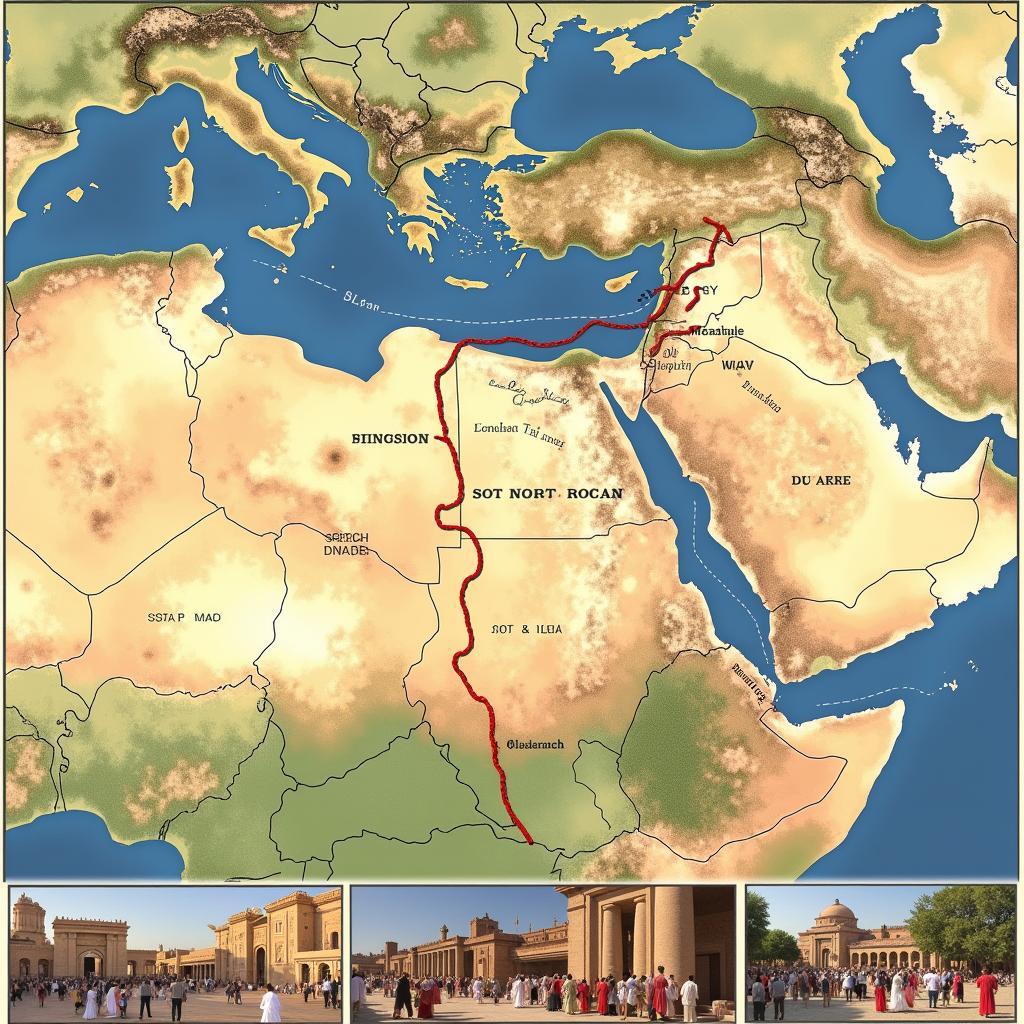A Comprehensive African Civilization Timeline
African civilization boasts a rich and complex history, far exceeding the common narratives often presented. This African Civilization Timeline aims to explore the key milestones and developments that have shaped the continent’s diverse cultures and societies from prehistory to the present day. We’ll delve into the ancient kingdoms, empires, artistic achievements, and intellectual contributions that demonstrate Africa’s profound impact on world history.
The narrative of African history is one of resilience, innovation, and cultural dynamism. From the earliest evidence of human origins to the rise of powerful empires and the ongoing struggle for self-determination, the African civilization timeline offers a captivating journey through time. Understanding this timeline allows us to appreciate the depth and breadth of African heritage and its enduring influence on the global landscape. Let’s explore the African civilization and culture in more depth.
Early African Civilizations: From Prehistory to the First Kingdoms
The African civilization timeline begins in prehistory with the emergence of Homo sapiens in East Africa, the cradle of humankind. Archaeological evidence points to sophisticated tool use and social structures dating back hundreds of thousands of years. As communities developed, agriculture and animal domestication flourished, leading to the rise of settled societies and eventually, the first kingdoms. One such example is the Kingdom of Kush, which emerged around 2500 BCE and prospered for over a millennium. Kush, located in present-day Sudan, developed a unique culture, advanced ironworking technology, and engaged in extensive trade networks spanning across Africa and the Middle East.
The rise of Ancient Egypt, another pivotal civilization in the African civilization timeline, coincided with the development of Kush. While often studied separately, Egypt’s history is intertwined with that of other African societies. The two kingdoms interacted through trade, diplomacy, and sometimes conflict, sharing cultural influences and contributing to the rich tapestry of early African history. Want to delve deeper into the art history timeline? Check out our African art history timeline.
The Golden Age of African Empires: Growth and Influence
The African civilization timeline progresses with the emergence of powerful empires that flourished across the continent. The Ghana Empire, situated in West Africa, dominated the trans-Saharan trade routes from the 8th to the 11th centuries. Its wealth and influence stemmed from the control of gold and salt, vital commodities that fueled trade across vast distances. The subsequent Mali Empire, also in West Africa, surpassed Ghana in size and power, reaching its zenith in the 14th century under the legendary ruler Mansa Musa. His pilgrimage to Mecca, showcasing his immense wealth, cemented Mali’s prominence on the world stage. Meanwhile, in Southern Africa, the Great Zimbabwe civilization arose, known for its impressive stone architecture and complex social organization. You may also find our African history tutoring resources valuable.
These empires represent a significant period in the African civilization timeline, marked by advancements in trade, governance, and cultural expression. They fostered intellectual and artistic achievements, including impressive oral traditions, intricate metalworking, and vibrant textile production. Their impact extended far beyond their borders, influencing neighboring societies and contributing to the interconnectedness of the African continent.
Colonialism and the Struggle for Independence: A Challenging Chapter
The African civilization timeline takes a dramatic turn with the arrival of European powers and the subsequent period of colonization. Starting in the 15th century, European influence gradually expanded across the continent, culminating in the Scramble for Africa in the late 19th century. This period marked a significant disruption to existing African societies, leading to the exploitation of resources, the imposition of foreign rule, and the suppression of indigenous cultures. However, even amidst the challenges of colonialism, African resilience and resistance persisted.
The 20th century witnessed a wave of independence movements across Africa as nations fought to reclaim their sovereignty. From Ghana’s independence in 1957 to the end of apartheid in South Africa in 1994, the struggle for self-determination shaped the African civilization timeline. This period was marked by both triumphs and setbacks, as newly independent nations navigated the complexities of nation-building and addressed the lingering legacies of colonialism. Are you interested in the evolution of African fashion? Explore our African fashion timeline.
Modern Africa: Challenges and Opportunities
The African civilization timeline continues to unfold in the 21st century, marked by both challenges and opportunities. African nations are grappling with issues such as poverty, inequality, and political instability, while also experiencing rapid economic growth, technological advancements, and a resurgence of cultural pride. The African Union, established in 2002, represents a collective effort to promote unity, cooperation, and development across the continent.
The future of the African civilization timeline holds immense potential. With a young and dynamic population, abundant natural resources, and a growing entrepreneurial spirit, Africa is poised to play an increasingly important role on the global stage. Understanding the complexities of its past is crucial to navigating the present and shaping a future where the rich tapestry of African civilizations continues to flourish. For further exploration on this subject, check out our article on African archaeology news.
Conclusion
The African civilization timeline demonstrates a rich and complex history of innovation, resilience, and cultural diversity. From the earliest evidence of human origins to the rise of powerful empires and the ongoing struggle for self-determination, the African continent has made significant contributions to world history. By understanding this timeline, we can gain a deeper appreciation for the profound impact of African civilizations and their enduring legacy.
FAQ
-
What is the oldest civilization in Africa?
The oldest known civilization in Africa is often considered to be the Kingdom of Kush, dating back to around 2500 BCE. -
What were some of the major African empires?
Major African empires included the Ghana Empire, the Mali Empire, the Songhai Empire, the Kingdom of Kongo, and the Great Zimbabwe civilization. -
What was the impact of colonialism on Africa?
Colonialism had a devastating impact on Africa, leading to the exploitation of resources, the imposition of foreign rule, and the disruption of existing social and political structures. -
What are some of the challenges facing Africa today?
Modern Africa faces challenges such as poverty, inequality, political instability, and the impacts of climate change. -
What are some of the opportunities for Africa in the 21st century?
Opportunities for Africa include its young and dynamic population, abundant natural resources, and growing entrepreneurial spirit. -
Where can I find resources to learn more about African history? Consider our resource on African history tutoring.
-
What is the latest in discoveries about ancient African civilizations? See our African archaeology news for the most recent information.
When you need support, please contact us via Phone: +255768904061, Email: [email protected], or visit our address: Mbarali DC Mawindi, Kangaga, Tanzania. Our customer service team is available 24/7.



